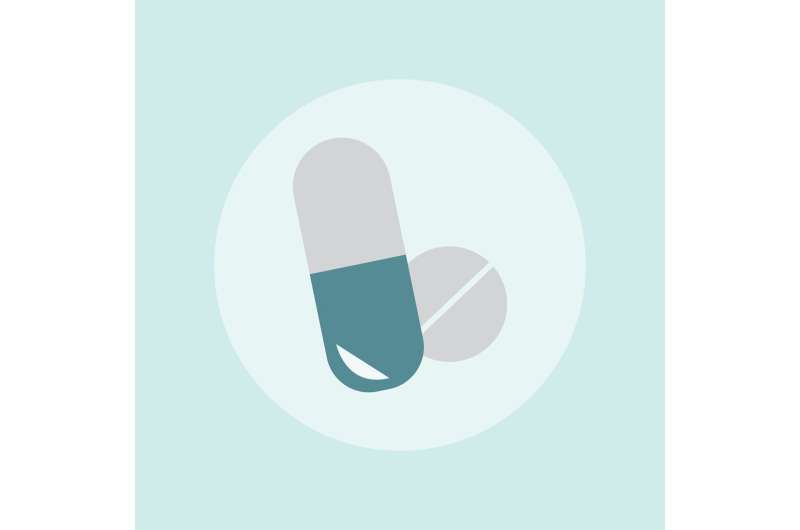This article has been reviewed according to Science X's editorial process and policies. Editors have highlighted the following attributes while ensuring the content's credibility:
fact-checked
peer-reviewed publication
trusted source
proofread
Buprenorphine after nonfatal opioid overdose found to result in reduced risk of overdose death

Receiving medication for opioid use disorders, such as buprenorphine after an overdose, leads to lower mortality risk, according to a Rutgers study.
Drug overdose deaths are a significant public health concern in the United States. According to the National Center for Health Statistics, there were more than 105,000 drug overdose deaths in 2021, which were largely attributed to opioids. Rutgers researchers found that opioid-involved overdose deaths following nonfatal overdose events are largely preventable with buprenorphine medication for opioid use disorder.
The medication, approved by the Food and Drug Administration, is a highly effective treatment for opioid use disorder that can be prescribed or dispensed in physician offices. However, fewer than one in 20 individuals studied received buprenorphine after experiencing a nonfatal opioid overdose, according to the study.
"Within the health care system, we need to expand availability and use of buprenorphine in general medical settings, including emergency departments and telehealth visits, and to continue working to reduce the stigma associated with substance use disorder and medication treatment more broadly," said Hillary Samples, assistant professor at the Rutgers School of Public Health and lead researcher of the study.
The study, published in the American Journal of Preventive Medicine, used national Medicare beneficiary data to identify adults with disabilities ages 18 to 64 years who received inpatient or emergency treatment for nonfatal opioid overdose from 2008 to 2016.
Analyses examined patterns of opioid use disorder treatment after surviving a nonfatal overdose to estimate the relationship of buprenorphine medication and psychosocial services with risk of overdose death in the following year.
Researchers found that receiving buprenorphine after a nonfatal opioid overdose was associated with a 62 percent reduction in the risk of subsequent opioid overdose death. The findings highlight a need to initiate potentially lifesaving treatment following nonfatal opioid overdoses because these events are strong risk factors for repeat overdose and death.
Current evidence on opioid use disorder treatment after opioid overdose consistently shows low uptake of medication for opioid use disorder such as buprenorphine, including less than 5 percent of patients in this study.
"Interventions that focus specifically on disadvantaged groups are needed to address disparities in treatment access," said Samples, who is a faculty member at the Center for Pharmacoepidemiology and Treatment Sciences at the Rutgers Institute for Health, Health Care Policy and Aging Research (IFH). "This is particularly important for patients with disabilities who potentially face greater barriers to care, like transportation difficulties or scheduling challenges related to individual or caregiver obligations at home and work."
More information: Hillary Samples et al, Buprenorphine After Nonfatal Opioid Overdose: Reduced Mortality Risk in Medicare Disability Beneficiaries, American Journal of Preventive Medicine (2023). DOI: 10.1016/j.amepre.2023.01.037



















